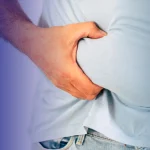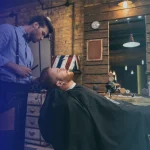
Table Of Content
For whatever reason, the problem of hair loss is quite frustrating. Preventing and eliminating hair loss can be very challenging at times. The good news is that you can prevent hair loss by supplementing with vitamins and minerals, because just like other parts of your body, your scalp also needs nourishment. You should take care to get your vitamin and mineral deficiencies from foods first. In cases where the nutrients are not sufficient, vitamin and mineral supplements can be taken under the control of a doctor.
It is recommended that the vitamin supplements used against hair loss be rich in amino acids and protein, especially containing the component L-Cysteine. Antioxidants, as well as vitamins such as D, A and Biotin, are vital against hair loss. Free radicals damage the scalp and hair follicles. Antioxidants fight free radicals. In addition, B12 is also a very powerful vitamin against hair loss.
Many people seek vitamins to stop hair loss, such as biotin, vitamin D, and iron supplements, which are believed to support hair health and reduce hair shedding. There are many vitamins that help with stopping hair loss. Here are some of the most effective ones: You can use a few of these vitamins according to the deficiencies in your body.
All cells in our body need vitamin A for growth. Vitamin A makes a great contribution to the rapid growth of hair by nourishing the scalp. If you have a very dry scalp, the growth rate of your hair will slow down. Vitamin A provides the scalp with the moisture which helps this process. In addition to preventing hair loss, vitamin A helps to strengthen the immune system, make the reproductive system healthy, and support the eyes, skin, teeth, liver, kidneys, lungs and bones. However, too much of vitamin A is harmful as well as insufficient in the body. Excessive intake of vitamin A leads to an increase in the level of toxicity in the body. This, in particular, can adversely affect your liver.
Vitamin A is mostly abundant in yellow, red, orange and dark green vegetables. Likewise, liver, eggs and dairy products are also rich in vitamin A. If you are deficient in vitamin A despite consuming these foods, you can use vitamin A supplements under the supervision of a doctor. You should also keep in mind that excess vitamin A damages the hair.
One of the biggest causes of hair loss is the lack of biotin, one of the B vitamins. Although biotin deficiency is very rare, hair loss, nail breakage and skin problems are often seen in its deficiency. Biotin deficiency usually occurs during pregnancy or inherited. The deficiency of biotin, which is one of the most essential vitamins for hair and skin health, can also occur with excessive alcohol and cigarette usage or the use of acne medication.
If you have a biotin deficiency, you can consume foods with high biotin such as egg yolk, cheese, rice, meat, various fruits and vegetables. Also, a deficiency of vitamin B12 can also cause hair loss. B12 deficiency is seen especially in people who are vegetarian and vegan. In this case, it is important to replace the missing vitamin. When using vitamin B12, be sure to consult your doctor about which type of vitamin B12 supplement you should be using.
Vitamin D helps to maintain the thickness of the hair strands by stimulating the hair follicles. The Vitamin deficiency is considered the number one cause of Alopecia areata, eventhough it has not yet been fully proven. Vitamin D can be obtained from the sun due to the latitude and longitude of the geography. However, this does not mean that those living in very sunny climates get enough vitamin D. In many countries that see the sun very often, vitamin D deficiency is still experienced. Vitamin D deficiency is not only responsible for hair loss. It also causes many important ailments such as depression, high blood pressure, chronic fatigue, muscle weakness. Likewise, some drugs cause vitamin D deficiency.
Among the sources of vitamin D, we can count oily fish, cod, avocado, eggs, chia seeds, nut liver oil, some mushrooms. Depending on the latitude and longitude of the place where you live, sunbathing during the hours when the amount of vitamin D that can be taken from the sun is maximum can also be beneficial. However, if your vitamin D is insufficient, you should definitely combine it with vitamin K and take supplements.
Zinc mineral plays a very important role in the growth and repair of hair tissue. It also ensures the proper functioning of the sebaceous glands around the hair follicles. The best sources of zinc are animal proteins and also including in many food sources. Therefore, the risk of zinc deficiency increases in vegetarians and vegans. Studies have shown that zinc levels in the blood and hair are lower in men with androgenetic alopecia, also known as male pattern baldness. Zinc that is not stored in the body is not only beneficial for hair. It is very important for strengthening the immune system, accelerating wound healing, physical growth, cell division, and the development of the senses of taste and smell. It is also good for diseases such as colds, diabetes, and blindness due to old age.
As stated before the best sources of Zinc are animal proteins. In addition, zinc can be obtained from foods such as whole grains, legumes and nuts. However, if enough animal protein is not taken, the possibility of zinc deficiency is high. When the zinc taken from the foods is insufficient, supplements should be used. A zinc level that is higher than it should be is as harmful to the hair and body as its deficiency.
One of the reasons for hair loss can also be from decreased iron stores in your body. While severe iron deficiency manifests itself as shortness of breath, fatigue and chest pain, some people also experience hair loss. That’s because iron is a very important component of an enzyme called ribonucleotide reductase that helps cell growth. In particular, female pattern hair loss, also known as androgenetic alopecia, can mostly be caused by iron deficiency. The onset of female pattern hair loss usually begins with thinning of the hair in the middle of the scalp. Other than hair loss, iron deficiency also causes other problems such as fatigue, brittle nails, rapid heart rate, pale skin, and shortness of breath.
Iron-rich foods include red meat, chicken, fish, leafy green vegetables, and legumes. If you are experiencing iron deficiency despite consuming enough iron-containing foods, you can use iron supplements under the supervision of a doctor.
The effect of vitamin E against hair loss is mostly related to its antioxidant properties. Since vitamin E can reduce cell damage and accelerate hair growth, it has a positive role in hair loss and lifeless hair problems. The antioxidant properties of vitamin E help reduce the amount of oxidative stress and free radicals that cause the breakdown of hair follicle cells in the scalp. Vitamin E also helps to restore the shine lost as a result of damage to the hair.
Vitamin E is found naturally in many foods. You can get the vitamin E you need by consuming green leafy vegetables, nuts, wheat germ oil, sunflower seeds, roasted almonds, peanut butter, boiled spinach and broccoli. If you are experiencing vitamin E deficiency despite consuming enough of these nutrients, you can consult your doctor and use vitamin E supplements chosen. Since vitamin E is a fat-soluble vitamin, it should be taken after a fatty meal.Not to forget that too much vitamin E is harmful.
Vitamin and mineral deficiencies can cause hair to appear lifeless, dull and thin. At the same time, missing vitamins in some people can lead to hair loss. So to answer the question, yes. However, generally hair loss is not related to vitamin deficiencies only. Therefore, eliminating vitamin deficiencies alone may not be enough to prevent hair loss. In this case, hair loss can be prevented by other methods such as PRP and Turkey hair transplantation. Much more successful results are obtained when vitamin supplements are used in addition to hair loss treatments stated above. If Turkey hair transplant operation is decided to prevent hair loss, hair transplantation costs, clinics and doctors’ qualifications should be investigated. In recent years, Turkey has become a prominent destination for individuals seeking hair transplant procedures, and a key factor driving this trend is the competitive Turkey hair transplant cost. Renowned for offering high-quality services at a fraction of the price compared to many Western countries, Turkey has positioned itself as a top choice for those considering hair restoration. The cost advantage doesn’t mean a compromise in the quality of treatment – Turkish clinics often feature experienced surgeons and state-of-the-art facilities. Opting for a hair transplant in Turkey not only addresses the aesthetic concern but also provides a cost-effective solution that attracts individuals from around the world.




